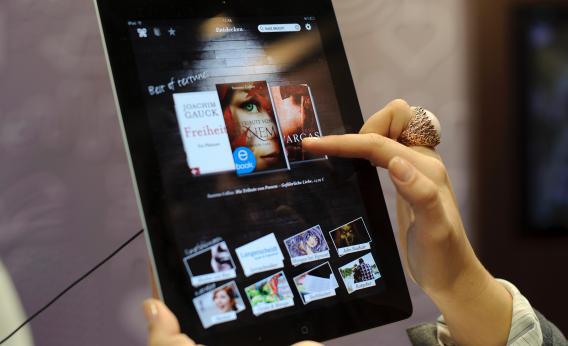If Apple and a clutch of publishers plotted together, they didn’t need to. U.S. trustbusters say the iPad maker and five electronic book producers conspired to raise download prices. But the model they came up with makes sense even without collusion, giving the publishers perhaps their best chance of survival.
The book business has changed radically in recent years. The old model of selling wholesale and letting retailers set prices worked fine in the world of printed books and bricks-and-mortar stores. But the arrival of digital tomes allowed Amazon, for one, to slice prices to $9.99 per e-book, providing relatively cheap content that helped make its Kindle e-reader gadgets popular. Prices like that ate into publishers’ profit margins.
Apple came up with a better deal. Before introducing the iPad in 2010, it proposed a so-called agency model, in which publishers would set the retail price for books while Apple took a 30 percent cut. The plan also required publishers not to sell their titles cheaper to anyone else. As with its music sales through iTunes, Apple acts as a sales agent, with no power to discount prices.
The scheme seems to be working for publishers, retailers and even consumers - with the possible exception of Amazon, whose dominance in the e-book market has ebbed.
And there’s nothing illegal about the agency model per se. But the Justice Department says Apple and the publishers colluded to raise the price of e-books, costing consumers tens of millions of dollars. The regulator cites private meetings of the publishers’ chief executives at Manhattan restaurants and says the companies entered into essentially identical agreements with Apple over the course of three days in January 2010.
If proved true, the allegations portray the type of clandestine coordination that antitrust laws prohibit. And it’s no surprise that the current aggressive DoJ, which is on a run of blocking deals like AT&T’s proposed $39 billion tie-up with T-Mobile USA, would go after such behavior.
What’s odd, though, is that if collusion happened it was unnecessary. The new model makes eminent business sense for publishers. And if readers pay a bit more than they did in the experimental days of e-books, at least it means publishers will make enough money to keep more books coming.
Read more at Reuters Breakingviews.
